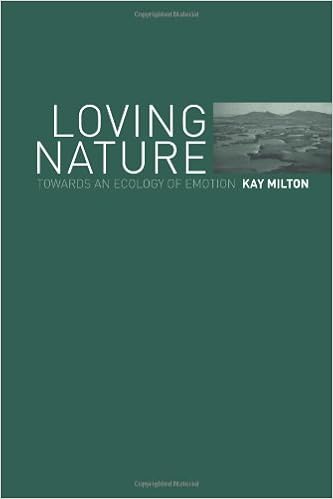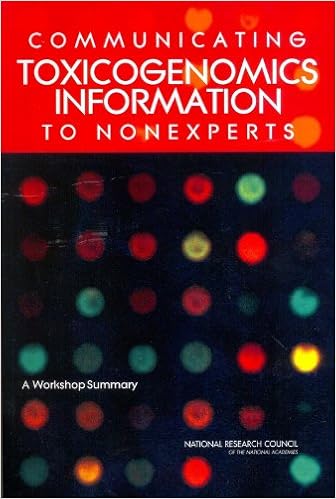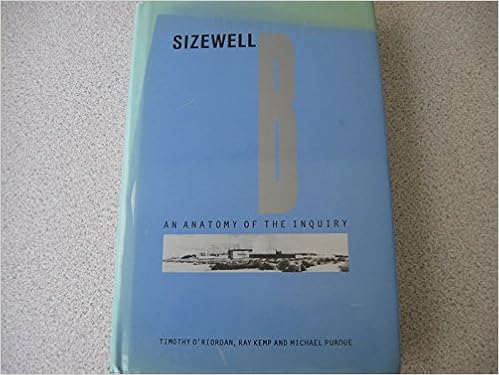
By Kay Milton
Because the complete results of human task on Earth's life-support platforms are printed through technological know-how, the query of even if we will be able to switch, essentially, our courting with nature turns into more and more pressing. simply as very important as an figuring out of our surroundings, is an figuring out of ourselves, of the types of beings we're and why we act as we do. In Loving Nature Kay Milton considers why a few humans in Western societies develop as much as be nature enthusiasts, actively occupied with the welfare and way forward for crops, animals, ecosystems and nature in most cases, whereas others appear detached or cause on destroying this stuff. Drawing on findings and concepts from anthropology, psychology, cognitive technology and philosophy, the writer discusses how we come to appreciate nature as we do, and specifically, how we improve emotional commitments to it. Anthropologists, lately, have tended to indicate that our figuring out of the realm is formed completely by means of the tradition within which we are living. Controversially Kay Milton argues that it really is formed by way of direct event within which emotion performs a necessary position. the writer argues that the normal competition among emotion and rationality in western tradition is a delusion. The impact of this fantasy has been to aid a industry financial system which systematically destroys nature, and to exclude from public determination making the types of emotional attachments that aid extra environmentally delicate methods of residing. a greater realizing of ourselves, as essentially emotional beings, might supply such methods of residing the honour they wish.
Read Online or Download Loving Nature: Towards an Ecology of Emotion PDF
Similar Environmentalism books
How do societies negotiate the it seems that competing agendas of environmental security and social justice? Why perform a little international locations practice far better than others in this entrance? Democracy within the Woods addresses those query via reading land rights conflicts-and the destiny of forest-dependent peasants-in the context of the various woodland estate regimes in India, Tanzania, and Mexico.
China Shifts Gears: Automakers, Oil, Pollution, and Development (Urban and Industrial Environments)
Chinese language creation of autos rose from 42,000 automobiles in keeping with yr in 1990 to two. three million in 2004; the variety of passenger autos at the street doubled each and a part years during the Nineties and maintains to develop. In China Shifts Gears, Kelly Sims Gallagher identifies an extraordinary chance for China to "shift gears" and steer clear of the standard difficulties linked to the car industry--including city pollution as a result of tailpipe emissions, greenhouse fuel emissions, and excessive dependence on oil imports--while spurring financial improvement.
Communicating Toxicogenomics Information to Nonexperts: A Workshop Summary
Toxicogenomics, the research of ways genomes reply to publicity to toxicants, may well finally carry the promise of detecting adjustments within the expression of a person's genes if she or he is uncovered to those toxicants. because the expertise speedily develops, it truly is serious that scientists and the general public speak concerning the gives you and boundaries of this new box.
Sizewell B: An Anatomy of Inquiry
The topic of nuclear energy is without doubt one of the such a lot politically debatable in modern Britain. The thought via the critical electrical energy producing Board to hunt ministerial consent for Britain's first American-designed pressurized water reactor at Sizewell B close to Aldeburgh, Suffolk, prompted the most contentious nationwide strength selection in recent times.
Extra resources for Loving Nature: Towards an Ecology of Emotion



